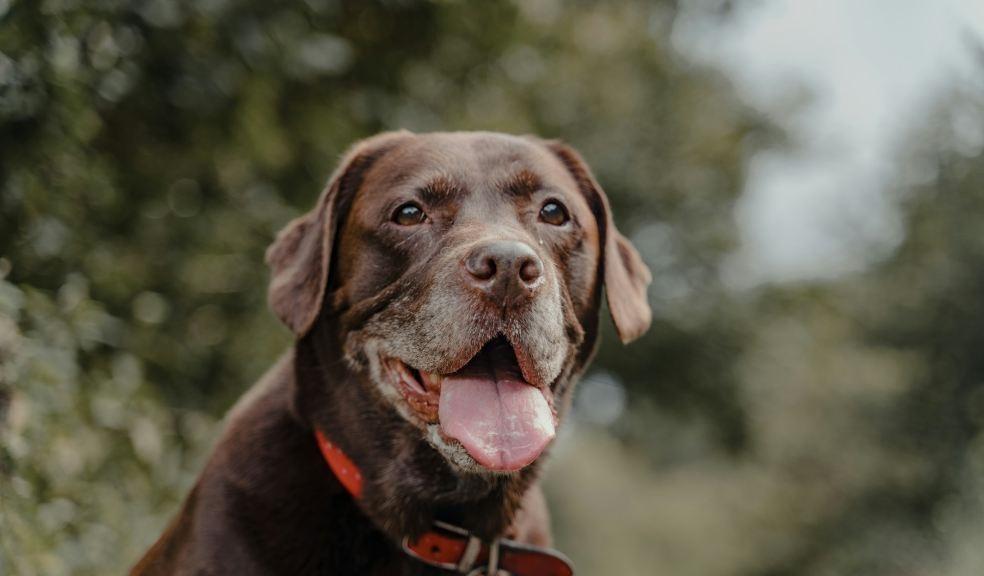
Lauren Langman’s Six Expert Insights Into Senior Dog Wellness
Hosted by expert dog trainer Lauren Langman, the Absolute Dogs podcast, Sexier Than a Squirrel, is the ultimate audio resource for dog owners. The entertaining, informative podcast covers common dog owner struggles and offers inventive, game-based training solutions to help listeners achieve real-life results.
In an episode from May 2024, Lauren Langman discusses senior dog wellness with Pro Dog Trainer, Amanda. From science-based top tips to touching stories of the duo’s beloved dogs, the episode explores the highs, lows, and profound insights that come with caring for senior dogs. Here are six insights from the episode.
1. Accepting The Ageing Process
When you own a dog, you go on a unique journey together that may last many years. That’s why, as their owner, it can be hard to watch your dog age. You may worry about difficult decisions you’ll have to make about their health or one day saying goodbye.
When it comes to caring for senior dogs, Lauren Langman’s first piece of advice is to accept the ageing process. We’re all growing older, and our dogs are too. However, you can still give your senior dog a wonderful life filled with love.
Try to put aside worries or concerns about your dog getting older. Instead, focus on what you can do to actively support your dog as they age and give them an excellent quality of life. Lauren Langman calls this “working with the ageing process.”
Accepting that your dog is getting older doesn’t mean standing by as they decline. Acceptance can help you embrace the fact that your dog is ageing and make proactive lifestyle changes to meet their needs.
Dogs can also evolve in positive ways as they grow older. Lauren Langman experienced this with her dogand “super pal” Popi. She trained Popi while studying at university, and working with Popi inspired her to become a dog trainer.
Lauren Langman says Popi got “better and better as she got older.” Popi became sweeter with age, enjoyed the company of other dogs more, and lost her fear of noises as her hearing declined. Lauren Langman and Popi’s relationship also deepened, and the two came to understand each other better.
Focusing on the positive aspects of your dog’s ageing can help you cherish each moment and strengthen your bond. This will make the later years of your dog’s life as meaningful and joyous as the early ones.
2. Promoting Neuroplasticity in Your Senior Dog
Like humans, dogs can experience cognitive decline as they get older. Over time, their brains lose connections and neurons, and their neural networks become less robust. This can lead to confusion, forgetfulness, anxiety, or a decline in alertness.
You can fight cognitive decline by playing games with your senior dog that promote neuroplasticity. Neuroplasticity is the ability of neurons and neural networks in the brain to alter their connections and behaviour in response to new information.
The old adage goes: you can’t teach an old dog new tricks. But senior dogs, like puppies and younger dogs, can benefit hugely from game-based training.
When it comes to promoting neuroplasticity in humans, scientists often suggest playing simple games like crosswords or Sudoku puzzles. For dogs, Ditching the Bowl and playing games can help maintain and develop their neural pathways.
Ditch the Bowl encourages owners to give dogs their daily food rations as rewards rather than as a meal in a bowl. More opportunities for your senior dog to earn rewards through problem-solving will help their brain stay flexible and healthy.
Scatter feeding, which involves scattering your dog’s food on the floor, around the house, or in the garden, is another great way to promote neuroplasticity. Encouraging your dog to forage for their food is a form of environmental enrichment that taps into their seeking system.
Scatter feeding can also build optimism, as it gives your dog a sense of control over how and where they get their food.
Lauren Langman trialled lots of routines before she realised that what Popi needed most in her schedule was variety. By introducing more games into Popi’s routine, she saw Popi change for the better.
3. Changing Up Your Senior Dog’s Exercise
Your dog may slow down as they get older and be unable to exercise for as long as they did when they were younger. As a result, it’s important to adapt their exercise routine.
When we think of exercising our dogs, we often think of taking them on daily walks. However, your senior dog may lack the energy for walks or struggle with mobility issues. If your dog is sensitive to the cold, you may also worry about walking them in poor weather conditions.
Thankfully, there are lots of other ways you can provide stimulating, age-appropriate exercise for your dog. Fitness games are particularly great for keeping your older dog active. Even doing a few exercises for 5-10 minutes per day at home can support their overall well-being.
Varied exercise will not only support your dog’s physical health but promote neuroplasticity too. Dog owners who join Absolute Dogs’ Games Club can help their dogs stay active with weekly fitness classes.
4. Giving Your Senior Dog the Best Nutrition
On average, dogs live for around 12 years, though many live for much longer. Popi lived until she was 17, and Lauren Langman believes a balanced, well-supplemented diet contributed to her long life, alongside varied and intentional exercise.
Ensure your dog thrives in their later years by supporting their health with the best nutrition. Older dogs often need a different balance of nutrients to keep them healthy. Speak to your vet for guidance on your dog’s specific dietary needs.
As dogs and humans age, our bodies experience oxidative stress. Antioxidants in our diet can protect against this stress. Try incorporating antioxidant-rich foods, like blueberries and carrots, into your dog’s diet.
You can also give your dog’s health an extra boost with supplements specifically formulated to support older dogs. Calm-K9 Senior Boost from A-OK9 contains lots of beneficial ingredients, including the powerful antioxidant Co-enzyme Q10. This compound occurs naturally in animals and humans and is beneficial to the immune system, muscles, heart, and brain.
Use the code CALM10 to get £10 off any of the A-OK9 supplement range for your dog.
5. Managing Pain
Not all dogs experience pain as they get older, but pain management can be an important aspect of caring for your senior dog. A common cause of pain in older dogs is arthritis, a disease that can affect their back and joints and make everyday movements uncomfortable.
Lauren Langman emphasises that you must address pain so you can give your dog the best possible quality of life. Aside from being unpleasant to experience, pain can build up over time, changing how your dog moves. This can potentially cause more pain down the line.
Speak to your dog’s vet for advice on how to manage your dog’s pain. You might choose to give your dog pain medication to ensure they experience a good baseline quality of life.
You should also try to keep your dog at a healthy weight. Some senior dogs gain weight as they’re not moving as much as they once did. However, extra weight can put more pressure on joints and exacerbate inflammation. This can worsen pain for dogs with arthritis.
Avoid vigorous exercise and opt for gentler alternatives, such as shorter walks or at-home exercises, to keep your senior dog fit and healthy.
6. Giving Your Senior Dog Extra Support
As your dog grows older, they may experience a loss of physical function. For instance, they may no longer be able to run like they used to. They may lose their sight or hearing or develop arthritic pain or gut issues.
These changes can be scary and confusing for your dog. As a result, they may lose their sense of optimism about life and depend on you more.
When this happens, you may need to adjust your routine to accommodate your dog’s changing needs. For instance, making sure your dog isn’t alone for long periods of time by altering your schedule or arranging extra dog-sitting.
Another example of providing extra support for your dog is factoring in more toilet breaks or rests throughout the day. In this way, senior dogs become much like puppies, needing plenty of sleep and toilet breaks.
Remember, you can support your dog by being a source of comfort, reassurance, and stability. As your dog’s guardian, you are someone they can look towards with positive joy and confidence as they age.
Listen to the full Absolute Dogs podcast episode on senior dog wellness.
About Lauren Langman
Lauren Langman is a top-level agility competitor, the owner of one of the UK’s largest dog training facility, and the host of the Absolute Dogs podcast Sexier Than a Squirrel. She is also the co-founder of the Sexier Than a Squirrel Challenge. The challenge has helped more than 130,000 dog owners get tangible results. She is also the best-selling author of books like There’s a Trick for That! and Game on! Puppy.







